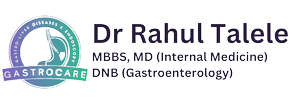Colonoscopy

What is Colonoscopy?
Colonoscopy is a medical procedure used to examine the inside of the colon, also known as the large intestine or bowel. It is performed by a gastroenterologist, a specialist in digestive system disorders. During a colonoscopy, a long, flexible tube called a colonoscope is inserted into the rectum and guided through the colon.
The colonoscope has a small camera and a light source at its tip, which allows the doctor to view the lining of the colon on a monitor. The procedure is typically performed under sedation to ensure patient comfort. The colonoscope can be maneuvered throughout the colon, and if necessary, small surgical instruments can be passed through it to perform certain procedures.
Symptoms:
There are a few symptoms that may occur before and after the procedure. Here are some common experiences related to a colonoscopy:
- Bowel Preparation Symptoms
- Sedation Effects
- Abdominal Discomfort
- Gas and Bloating
- Minor Rectal Bleeding
- Fatigue
It’s important to note that while these symptoms are generally normal, if you experience severe or persistent abdominal pain, heavy rectal bleeding, fever, or any other concerning symptoms, you should contact your healthcare provider immediately, as these could indicate complications or other underlying issues.
Precaution:
Here are some general precautions to consider before undergoing a colonoscopy:
Bowel preparation: Your doctor will provide specific instructions for bowel preparation, which involves cleansing your colon before the procedure. It typically includes a clear liquid diet, taking laxatives, and sometimes using enemas or other colon cleansing methods. Follow the instructions carefully to ensure a clear view during the colonoscopy.
Medication adjustments: Inform your doctor about any medications you’re taking, including over-the-counter drugs, supplements, or herbal remedies. Certain medications may need to be adjusted or temporarily stopped before the procedure, especially blood thinners or iron supplements.
Allergies and sensitivities: Inform your doctor about any known allergies or sensitivities, particularly related to medications, anesthetics, or latex. This will help them take necessary precautions to avoid any adverse reactions.
Medical conditions: If you have any medical conditions, such as heart disease, lung problems, or diabetes, inform your doctor beforehand. They may need to make specific accommodations or adjust your medications for the procedure.
Pregnancy: If you’re pregnant or suspect you might be, notify your doctor. In general, colonoscopy is not performed during pregnancy unless it’s absolutely necessary for diagnosis or treatment.
Transportation: Since you’ll receive sedation during the colonoscopy, it’s important to arrange for someone to drive you home afterward. Sedatives can impair your judgment and reflexes, making it unsafe to drive or operate machinery for a certain period.
Dietary restrictions: Your doctor may advise you to avoid certain foods or drinks in the hours leading up to the procedure. Follow the recommended dietary restrictions to prevent complications during the colonoscopy.
Informing your doctor: Share your complete medical history, including previous surgeries, chronic conditions, or any family history of gastrointestinal issues. This information will help your doctor plan and conduct the procedure more effectively.
Questions and concerns: If you have any doubts, questions, or concerns about the colonoscopy procedure, discuss them with your doctor beforehand. They can provide clarifications and address any anxieties you may have.
Remember, these precautions are general guidelines, and it’s crucial to follow the specific instructions provided by your healthcare provider. They will tailor the recommendations to your individual needs and circumstances to ensure a safe and successful colonoscopy.
